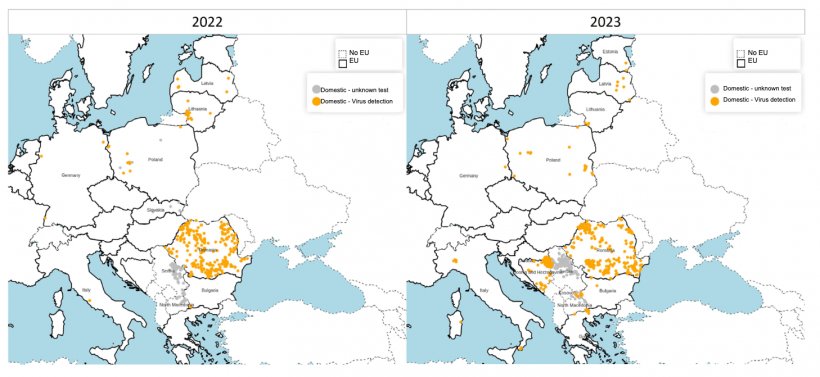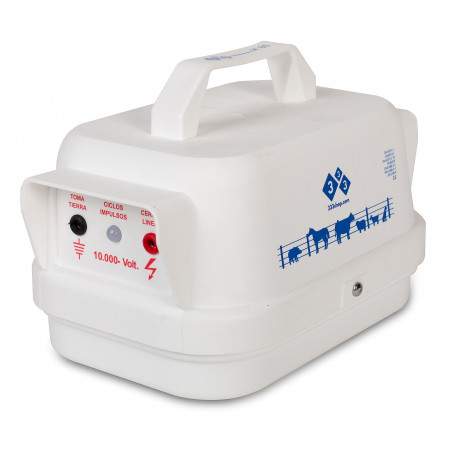In 2023, 14 Member States were affected by African swine fever (ASF) and it caused a five-fold increase in outbreaks in domestic pigs compared to the previous year, according to EFSA.
According to the EFSA report, 2023 saw the highest number of ASF outbreaks in domestic pigs since 2014. Croatia and Romania, with 1124 and 740 outbreaks respectively, reported 96% of the total number of outbreaks.


Spatial distribution of ASF outbreaks among confirmed domestic pigs in 2022 (left) and 2023 (right). Source: ADIS, accessed February 1, 2024. © EuroGeographics for administrative boundaries.
If, in addition to the Member States, we consider the data from Bosnia-Herzegovina, with 1,508 cases in domestic pigs, and from Serbia with 991, as we reported last January from the ADIS report, the data soar even higher.
The number of outbreaks in wild boar in 2023 increased by 10% compared to the previous year. The virus was introduced for the first time in Sweden and Croatia and spread to new areas in Italy. It also reappeared in Greece after a two-year break. Germany, Hungary, and Slovakia have seen an improvement in the epidemiological situation in their countries, with a decrease in the number of outbreaks in wild boar.
To detect ASF outbreaks, EFSA experts recommend prioritizing passive surveillance, including the searching and testing of wild boar carcasses, rather than active surveillance, including the testing of hunted wild boar.
In October 2024, EFSA will publish a scientific opinion reviewing the risk factors for the occurrence, spread, and persistence of ASF virus in wild boar populations as well as in domestic pigs.
May 17, 2024/ 333 with EFSA and ADIS data.
https://www.efsa.europa.eu








